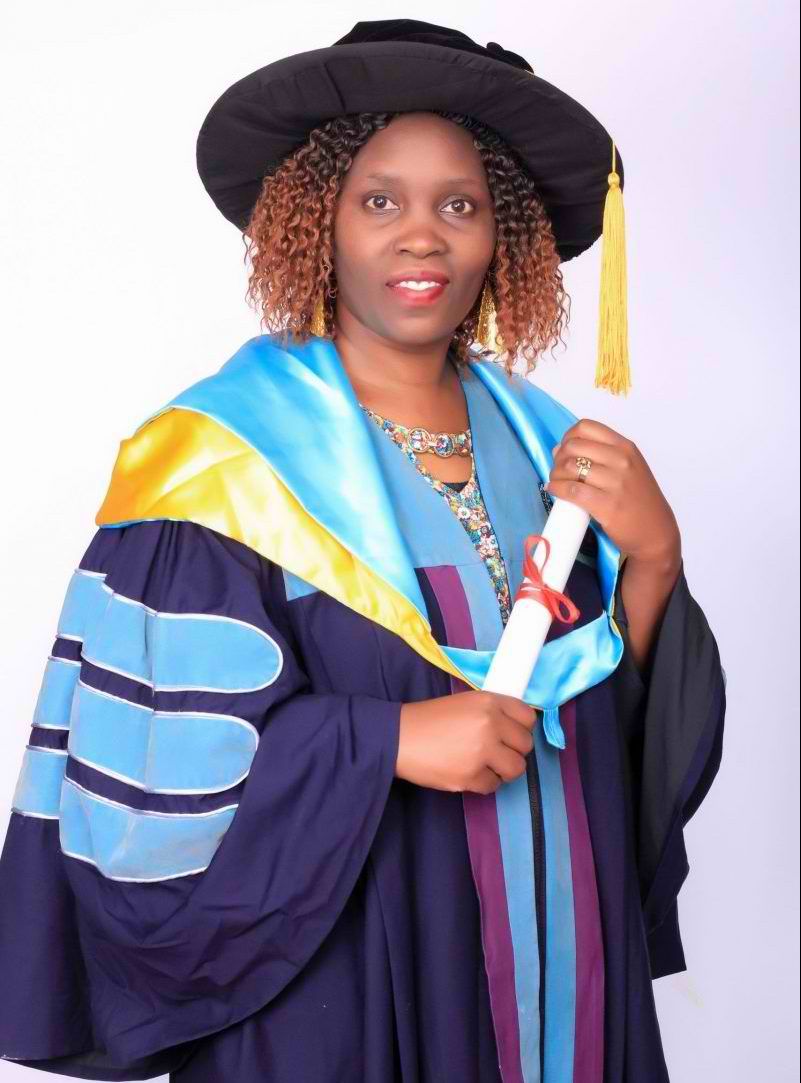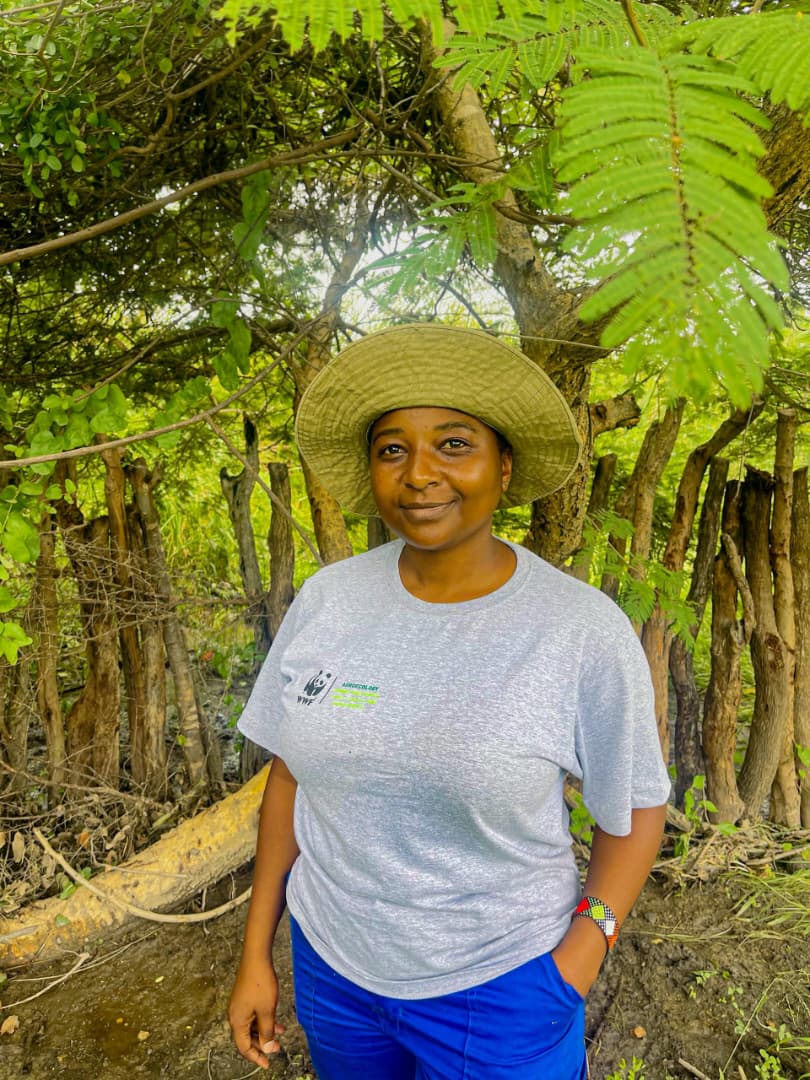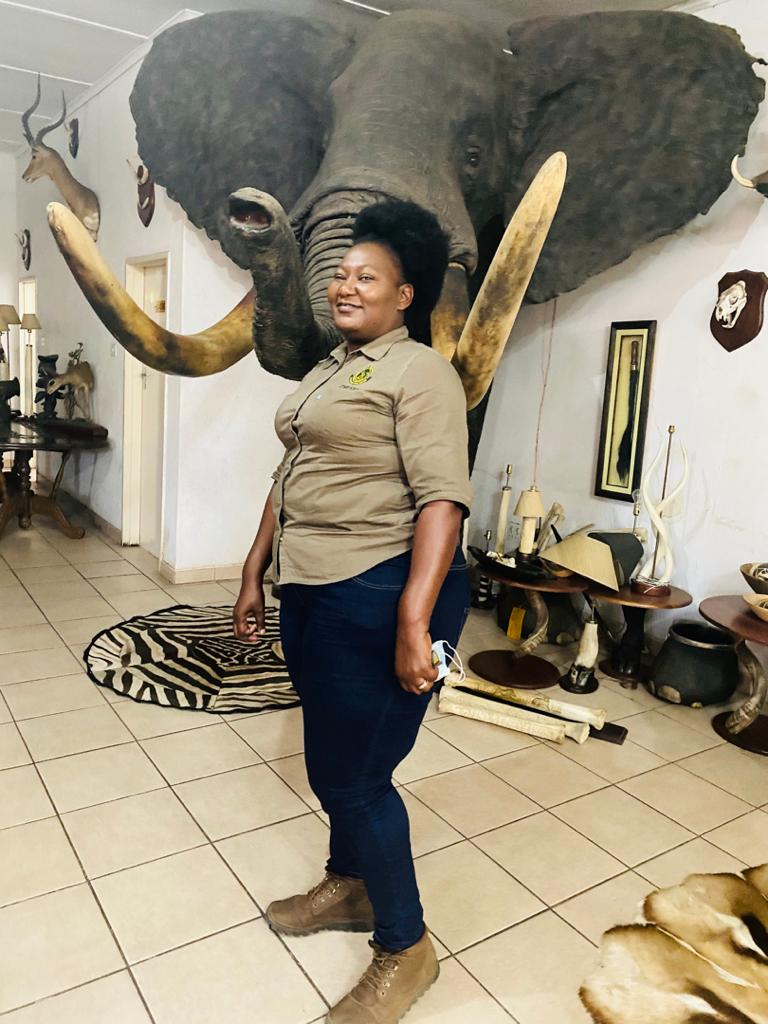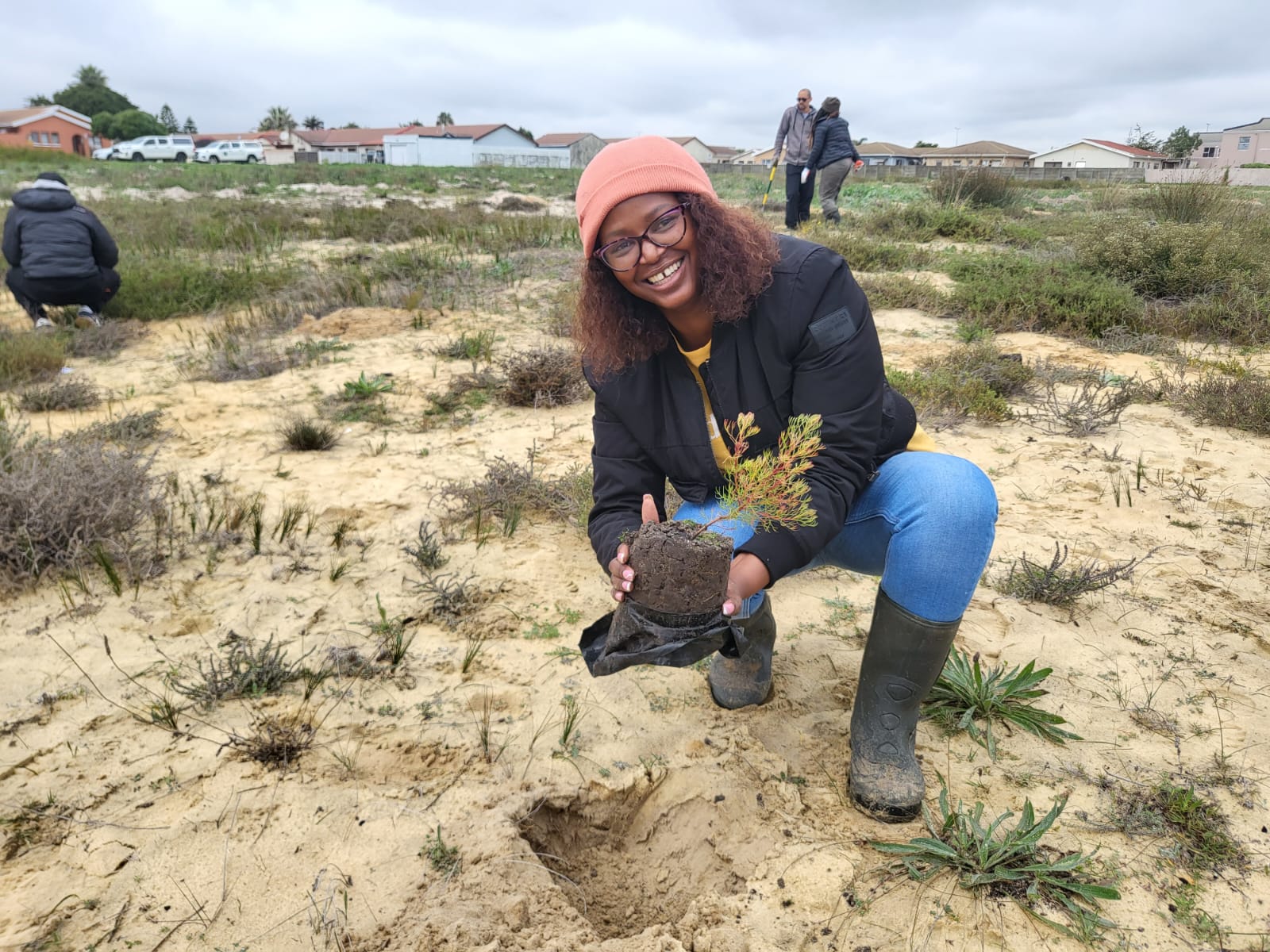When you gain knowledge, you can make informed decisions.
Dr. Faith Milkah Wakonyo Muniale is a landscape ecologist with research and development experience in natural resources management and livelihoods. She believes in sustainable development where natural resources are conserved while improving livelihoods, particularly in rural areas. She also strongly believes in homegrown solutions to local challenges in conservation and management of natural resources as well as improvement of livelihoods.
She shares her story with Damaris Agweyu.

Faith, what would you say was the most important thing your parents did in raising you?
Investing in my education. I started my schooling in a remote village in Njoro, where I was born and raised; the environment was very limiting in terms of exposure and opportunities. At the age of 11, my parents enrolled me in a boarding school.
Visiting days were my highlights. We had a phone booth in school, and my parents had struck a deal with the headmaster: He would allow me to call them and let them know what I wanted them to bring along.
What was it like, going to boarding school at such a young age?
I loved it! I think it was the best thing that happened to me. Had I stayed in the small village school, my story would be very different. Boarding school gave me a lot of exposure as I interacted with kids from different places. Yes, I was homesick at times, and washing my clothes was not pleasant, but eventually, I adjusted and learned to become independent.
Academically I started topping the class, and in my final year of primary school, I was number 3 in the school. I then chose the high school I wanted to attend. This was 1992, at the height of tribal clashes in Kenya; our village was adversely affected. My parents asked me if I wanted to change schools, but I couldn't imagine myself anywhere else. I later realised that they were merely concerned about my safety; my school predominantly had students from the Kalenjin tribe and being one of the minority Kikuyus didn't seem safe. Eventually, my parents had to relocate from the village, but I stayed in my high school.
Was the world of conservation on your radar by the time you were joining university?
Absolutely not. When you're a top academic performer, everyone tells you what you should pursue—medicine, engineering, law… I was good at physics and maths; engineering made sense. When I was selecting my university course, my top 3 choices were all engineering courses. I chose wildlife management as my fourth option. I knew that there was no way I would end up there, it was just to fill up the space. When the results came back, that last choice was what I was called to study. I cried for days.
On the one hand, my family was concerned that I wasn't happy. On the other hand, I came from a village where simply making it to university was a huge deal. The people from my community were elated. They brought me gifts to celebrate my achievement. My dad borrowed a car so that my entire family could escort me on my first day. We arrived in style. But I was miserable; I didn't want to do wildlife management. What gave me hope was one of my uncles, who worked at the university, told me it would be possible to change my course. He urged me to just register and then work out the details later.
After registration, I looked at my other options; they were even worse than the Wildlife Management course I was crying about. I would be the only girl in a class of 14 students. This further reinforced my belief that Wildlife Management was not for me.
One day, one of my lecturers, Dr. Odanga, sat me down and told me what the course looked like regarding the opportunities and challenges it presented. Then he said, "Whatever course you choose, we will support you". These words changed the game for me, and I decided to stick with Wildlife Management.
But it was not smooth sailing. At some point in my first year, I threatened to drop out. We had to take a bushmanship course basically camping in the wild for two weeks. It was a first-time experience, everything was difficult. On one expedition in hells gate national park, a herd of buffalos attacked us. I was terrified. I fainted, and my classmates had to carry me. No one was hurt, but after the incident, I packed my bags ready to cut short the course and go home. I was ready to repeat the first year with a different course. I would even go for a Bachelor of Education in Home Science because I believed, or rather my society believed, that was where women belonged.
I wasn't allowed to leave camp, but I didn't participate in any activities for the rest of the expedition. I was disconsolate. The course was examinable, but I asked myself, was it worth risking my life? The answer was no. After this excursion, we went for our holidays, and that was a welcome break. It helped me calm down, and my classmates and lecturers constantly checked up on me, to revive my spirit in a sense.
My third-year attachment took me to Tsavo East National Park. I was exposed to the life of a wildlife manager working in the field. Three months into it, I got a conviction deep in my heart, I knew I couldn't do this. I didn't mind working in conservation, but I couldn't live in the wild. Eventually, I registered for a master's degree in Environmental Science at Egerton University. My research was in Mau forest, where I had grown up. I got to interact with the local communities. This, I enjoyed.
At what point did you finally settle into your career?
It was when I started working with local communities. I got a job with the Centre for Development Services (CDS), where we carried out projects related to natural resource management. I felt this was what I had been looking for all along. I loved what I was doing, and my boss was this amazing man who supported women's advancement. I got so wrapped up in the job that I abandoned my master's. But it was essential that I get that degree; it would take ten years before I got it.
Why was it so important that you get your master's degree?
Two reasons: First, there were high expectations from the people who knew I had enrolled; the pressure was real. Second, my boss was really pushing me to look for opportunities to help me progress. The more I thought of advancing in my career, the more the master's haunted me. I got an internship opportunity at the University of Reading, and during this period, I started working on PhD ideas. But I needed to complete my master's first. So when I came back home, I went for it. I was fined for the years I missed, but I was happy when I graduated.
And soon after, you went for your PhD?
Yes. I did my PhD in 4 years. I think I wanted to prove a point to myself.
I left CDS and joined Environmental Research Mapping and Information Systems in Africa (ERMIS Africa) where I was helping to map natural resources across Kenya. We wanted to understand how communities interact with, benefit from, and take care of their natural resources. I got a fellowship with African Women in Agricultural Research and Development (AWARD), and this exposed me to gender issues. That was when I decided it was time to do my PhD. But there was no way I could handle work, going to school, teaching (I was doing this part-time), plus I had just had my 3rd baby. I decided to resign from my job to go back to school.
I was trained for one month in the US on environmental leadership; there were 18 of us, and I was the first and only Kenyan woman to get in. I got funding and started my PhD in 2017.
When COVID struck, I'd just completed my course. I found myself at home with nothing to do. I'd resigned from my job, so I had no source of income. People wonder how you can be jobless with a PhD, but life happens. In March of 2021, I got a job with Tropical Biology Association. We train NGOs in conservation to manage projects and become sustainable. I love everything about it. Now I am looking to do a post-doctorate.
You are deeply invested in your education, eh?
Someone recently made a comment regarding the fact that I have so many certificates. And it's true, in between my degrees, I've done so many short courses. But I've not done this for the sake of getting degrees but rather, to impact others' lives. My PhD is for that woman in the village who couldn't go to school; if it can improve her livelihood, I will be happy.
I see so many women spending whole days, weeks, and months working in the field, and when it comes to reaping the harvest, it's the man who decides how the money will be used. Culturally this is accepted, expected even. But if this woman can empower herself through the correct information and opportunities, she will not be so helpless.
I've also seen a lot of money going to projects within communities, but livelihoods don't seem to change. If I don't see the changes, I haven't made good use of my education and experience.
What advice would you give to your younger self who was hell-bent on pursuing engineering?
To trust the process. Today I am in my perfect space. I can’t even imagine myself as an engineer!
I run a mentorship program for girls at my old high school where I go back once a year and with alumni women. One of the things we emphasise to these girls is the fact that they have the freedom to choose their careers. We bring in people from all types of career fields and talk about the possibilities out there. I didn’t have that in my day, I just chose what others believed made for a successful career.
Have you often been the only woman in the room?
Yes. Sometimes I don't even realise it because I have mastered my work to the extent that I am extremely comfortable in this space. Still, there are challenges. There are meetings where people volunteer me to take minutes. At first, it wasn't an issue because my boss who'd mentored me always told me to observe the way people do things and keep volunteering so I could learn. I took his words literally, and that's how I learnt to do things — by doing them. But I realised that no matter how accomplished you are, some people can't see past the fact that you are a woman. For that matter, they expect you to take the minutes or serve them tea; because that is "what women do". In some instances, I have had people from partner organisations go over my head to communicate directly to my boss.
How do you handle this?
It depends on how I feel at the moment. Naturally, I am a very outgoing person. I get along with most people, and I rarely take things personally. But recently, I told my boss that I am doing the WE Africa Leadership program and would be attending meetings. He said to me, "You women are so lucky— there are so many opportunities for you". That was the first time I felt offended. I didn't even know how to respond.
The patriarchy is alive and well but I have learnt that when you are bringing something valuable to the table, they won't dare voice their prejudice, even if they think it.
I make my values clear, and the moment they understand this, they respect that. In that sense, I am lucky because not many women come out of it without compromising themselves.
What has your journey taught you about life?
A lot.
I have learned that if you have a dream and you believe in it, go for it. Analyse the sacrifices you'll have to make and then make a decision that is right for you. I've given up many opportunities because I didn't want to leave my children and husband behind. I have made my rules, and I live with the consequences of those rules.
I have learned that education is critical. I believe that getting an opportunity to get a good education has made all the difference in my life. When you gain knowledge, you can make informed decisions.
I have learned that everyone has something they bring to the table. I've made mistakes, but there was always something to be learned from those mistakes. So I tend to look for the good in others. It's easy to find problems, but I have trained myself to look for the best in everyone and run with that.
***
This interview is part of a series profiling the stories of the 2021 WE Africa leadership programme fellows, African women in the environmental conservation sector who are showing up with a strong back, soft front, and wild heart.





